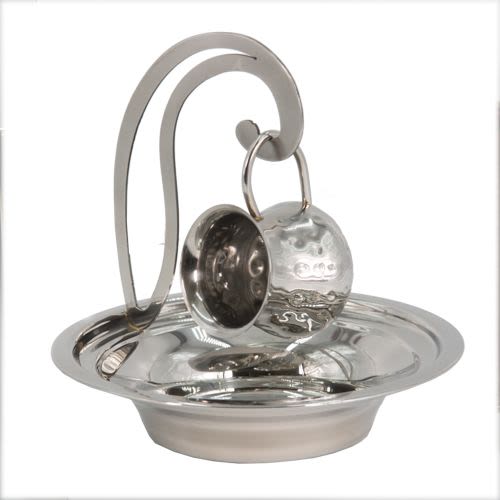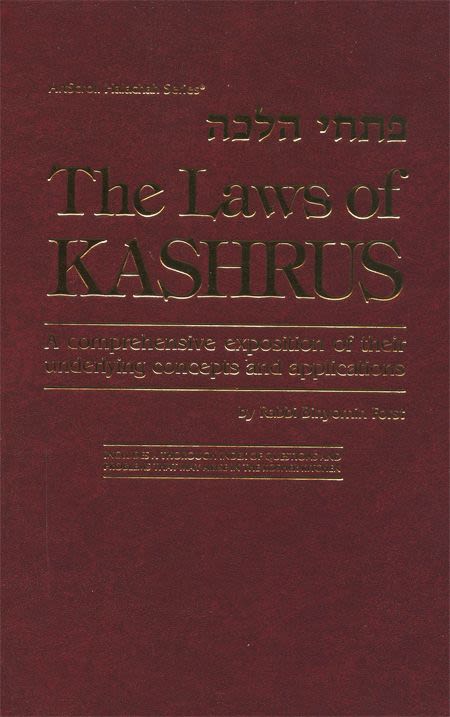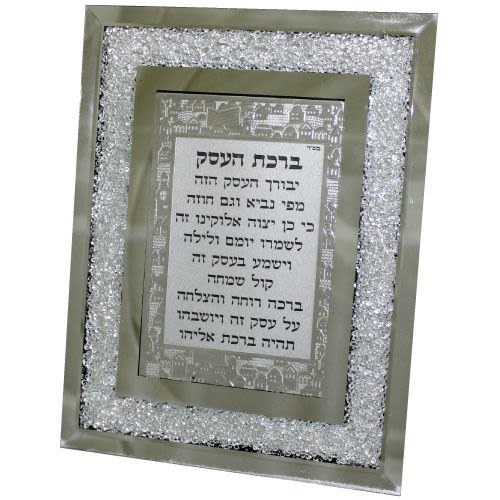
Trust Me Really, Part 2
Rebbe Chanina Ben Dosa and Choni HaMagel didn’t just have trust in Hashem, they mastered it. If you met them you would say to yourself, “Wow, those are two really...

Now the question becomes, didn’t Heaven already know what Choni was praying for? It almost seems as if God was playing with Choni, engaging him in a little Talmudic give-and-take. Or, was there, is there, a deeper message being conveyed?
A proper rain began to fall, and it continued to fall until it forced the Jews out of Jerusalem up onto the Temple Mount because of the flooding caused by the rains. So they told Choni, “Just as you prayed that the rains should fall, pray now that they should stop.”
He told them, “Go and see if the ‘Stone of Claims’ has dissolved yet.” (Ibid.)
Once again, Choni HaMagel had saved the day. Rains of Blessing had fallen and the drought had come to an end. As a result, the people were able to return to their homes and tend to their crops and livelihood, probably in awe of Choni and his Heavenly connection. Everyone, that is, except for the Gadol HaDor — the leader of the generation:
Shimon Ben Shetach sent a message to Choni,
“If it were not for the fact that you are Choni I would have issued a decree of excommunication against you!” (Ibid.)
After all, imagine what would happen if everyone approached Heaven the same way, with the same demanding tone? The result would not be rain of blessing, but rain of destruction, God forbid. Unless, of course, he becomes a Choni in his own right:
“But what can I do against you? You are like one unburdens himself before God and yet He still fulfills your wish, like a child who unburdens himself before his father and yet his father fulfills his wish!” (Ibid.)
The punch line is the actual verse that Shimon Ben Shetach uses to describe Choni:
Let your father and mother be glad, and let her who bore you rejoice. (Mishlei 23:25)
It doesn’t sound very derogatory, does it? Actually, it sounds like a compliment, as if Shimon Ben Shetach is saying to Choni, “You make your Father-in-Heaven happy.” Indeed, judging by Heaven’s response to Choni’s charade, it seems as if God was quite pleased with Choni HaMagel, letting him call the shots from start to finish.
Powerful people, Chanina Ben Dosa and Choni HaMagel. Servants of God for sure, but powerful people nonetheless. Obviously, the Source of their power was God Himself, for nothing happens in Creation if God does not will it (Chullin 7b). However, the source of their connection to God, which allowed them to have such spiritual influence and confidence in their actions was their bitachon; they were Ba’alei Bitachon.
Rebi Chanina and Choni didn’t just have trust in God, they mastered it. If you met them you would say to yourself, “Wow, those are two really confident and up-beat people who believe anything is possible, and I guess that is why it seems to be for them. They have mastered the art of being positive, and their positivity has drawn to them more positivity from Heaven.”
However, they would stop you and say, “Well, it’s not exactly like that…”, as the following story portrays. When, on one Erev Shabbat, Chanina Ben Dosa’s daughter filled the lamp with vinegar instead of oil and kindled it, and then told her father of her mistake with concern. He told her:
“He Who told oil to burn can tell vinegar to burn as well.” (Ta’anit 25a)
He was right: not only did the vinegar burn as if it was oil, it continued to burn throughout the entire next day until Motzei Shabbat. Talk about overkill — or the extent to which God is prepared to go for those whose belief in Him is absolute, as the next story proves as well.
There was a drought. The Jews went up to Jerusalem for the Sholosh Regolim,[i] but they had no water to drink. Nakdimon Ben Gurion, a wealthy man, saw this and went to the Roman governor who owned water cisterns and said to him,
“Lend me twelve of your water cisterns so that I can give them to the pilgrims. I will return all the twelve cisterns of water and if I cannot, I will give you twelve large silver bars.” (Ta’anit 19a)
The silver was worth much more than the water, so the two agreed to a date by which Nakdimon would have to replenish the cisterns or pay the debt. However, the date arrived and yet no rains had fallen, so the governor sent a messenger to Nakdimon requesting payment.
“The day is not yet over,” replied Nakdimon. “I still have time.” (Ibid.)
True, but it was already Pesach, and the rains hadn’t fallen during the rainy season, so what made Nakdimon believe that they would fall then, during the non-rainy season?
He sent a messenger again in the afternoon and received the same reply. The sun was leaning westward when he sent a third reminder, this time demanding, “Send me my money!”
“It’s not dark yet,” said Nakdimon.
The governor mocked him, saying, “No rain has fallen all year long and now you expect some to fall?” and he entered the public bathhouse in a joyous mood, confident that he would soon be receiving his money. At the same time, Nakdimon went to the Bait HaMikdash. (Ibid.)
Nakdimon remained confident, strong in his faith in God. Even though no rain had fallen since he had made the deal with the governor, he was not discouraged. Throughout the entire day he continued to trust that God would yet save him and fill the cisterns with water.
One crucial rule about being a Ba’al Bitachon: never, ever give up on God. Redemption can always come “in the wink of an eye”, or at the very last second, or even after what we think is the very last second. If any story makes this point, it is this one.
To be continued
[i] There is a mitzvah for Jewish males above the age of thirteen to go up to Jerusalem during the holidays of Pesach, Shavuot, and Succot, in order to bring sacrifices and celebrate the holiday there. It was an extremely festive time, and provisions had to be available, such as drinking water along the way, to make the journey bearable.
***
Pinchas Winston is the author of over 95 books on various topics that deal with current issues from a traditional Jewish perspective. He has also written on the weekly Torah reading since 1993, called “Perceptions”, as well as on current topics and trends affecting Jewish history, past and present. One of his missions is to make the depth and beauty of the more mystical teachings of Torah understandable and accessible to those who can really benefit from them. Visit his website at thirtysix.org.














Tell us what you think!
Thank you for your comment!
It will be published after approval by the Editor.